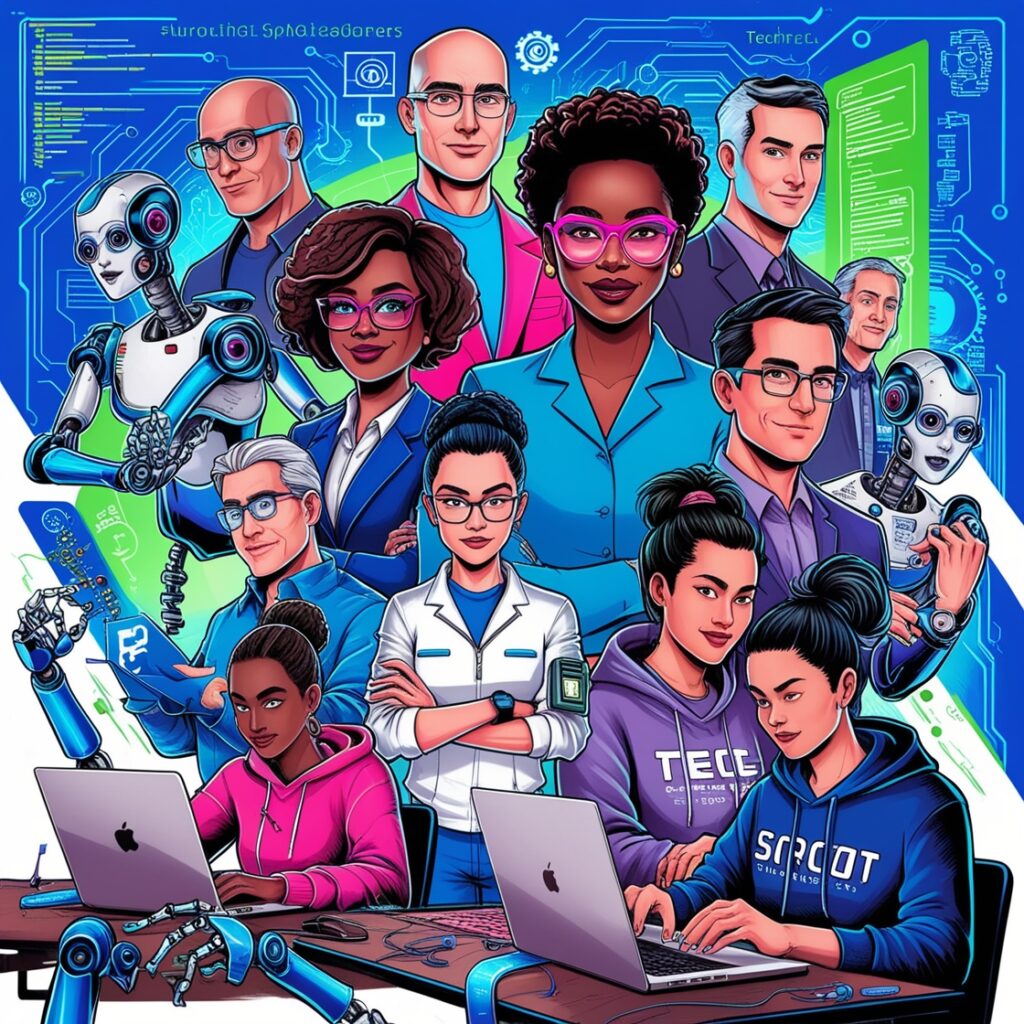Breaking into the tech industry has never been more accessible. With abundant resources, self-paced learning opportunities, and demand for skilled workers, starting your tech career without a degree is not just possible—it’s practical. This guide will explore how to launch a successful tech career in 2025, even if you don’t have a formal education in the field.
Why Tech Careers Don’t Require a Degree Anymore
The tech industry values skills over credentials. Many employers prioritize what you can do rather than where you went to school. Here’s why:
1. Rapid Evolution: The fast-paced nature of tech means skills learned today may be outdated tomorrow. Practical experience is more valuable.
2. Abundance of Online Learning: Platforms like Udemy, Coursera, and freeCodeCamp provide access to industry-standard knowledge.
3. Portfolio Focus: Building real-world projects and showcasing them is often more impressive than a degree.
4. Diversity of Roles: From web development to UX design, many roles are skill-based and open to anyone willing to learn.
Step-by-Step Guide to Starting Your Tech Career Without a Degree
1. Choose Your Path in Tech
Tech is a vast field with numerous career paths. Here are some popular ones:
• Web Development: Frontend, backend, or full-stack development.
• Data Science: Analyzing data to drive decisions.
• Cybersecurity: Protecting systems and data from cyber threats.
• UX/UI Design: Designing intuitive user interfaces.
• Cloud Computing: Managing online infrastructure and services.
Explore your interests, assess your strengths, and pick a field that excites you.
2. Learn the Fundamentals
You don’t need a degree, but you do need knowledge. Start by mastering the basics:
• Coding: Learn languages like Python, JavaScript, or HTML/CSS.
• Tech Tools: Get familiar with version control systems like Git and platforms like GitHub.
• Problem-Solving: Practice algorithms and data structures using platforms like LeetCode or HackerRank.
Recommended Resources
• freeCodeCamp: Free, hands-on coding exercises.
• Khan Academy: Beginner-friendly programming tutorials.
• Google Career Certificates: Job-ready training in fields like IT support and UX design.
3. Build Real-World Projects
Projects are the key to showcasing your skills. Work on tasks that solve real problems, such as:
• Creating a portfolio website.
• Building a small e-commerce platform.
• Designing a data dashboard for visualization.
These projects demonstrate your capabilities and give you tangible proof of your expertise.
4. Leverage Online Communities
The tech community is one of the most supportive. Join forums and platforms to network, share knowledge, and get help:
• GitHub: Showcase your work and collaborate with others.
• Stack Overflow: Get answers to coding questions.
• Reddit Communities: Subreddits like r/learnprogramming are great for beginners.
Networking can also lead to job opportunities, mentorship, and guidance.
5. Earn Certifications
While a degree isn’t necessary, certifications can validate your skills. Consider these options:
• Google IT Support Certificate
• AWS Certified Solutions Architect
• CompTIA Security+ for cybersecurity
• Microsoft Azure Fundamentals
Certifications make your resume stand out and reassure employers of your expertise.
6. Build a Strong Online Presence
Employers often check online portfolios and LinkedIn profiles. Use these tips:
• LinkedIn: Create a professional profile and showcase your projects.
• Portfolio Website: Include your projects, certifications, and contact information.
• GitHub Repository: Share your code and contributions.
A strong online presence demonstrates your commitment and makes it easy for employers to assess your skills.
7. Apply for Entry-Level Roles and Internships
Even without a degree, you can land entry-level roles or internships by focusing on skills and experience.
• Look for junior developer or tech support roles.
• Apply to freelancing platforms like Upwork to build experience.
• Network at tech meetups or job fairs.
Tailor your resume to highlight your projects, certifications, and problem-solving abilities.
8. Keep Learning and Evolving
Tech is always changing. Stay updated by:
• Following industry news on platforms like TechCrunch.
• Joining webinars and online courses.
• Attending hackathons and conferences.
Continuous learning keeps you competitive and opens doors to advanced roles.
Success Stories of People Who Built Tech Careers Without Degrees
• Kevin David Mitnick: A renowned cybersecurity expert who became a leading consultant without a degree.
• David Karp: The creator of Tumblr started coding at 11 and never pursued a formal degree.
• Colt Steele: A self-taught developer turned educator, known for his popular coding bootcamps.
These stories prove that passion, persistence, and skills can outweigh a traditional education.
Common Misconceptions About Tech Careers Without a Degree
1. Misconception: “You need to be a math genius to succeed.”
Reality: Many tech roles require problem-solving, not advanced math.
2. Misconception: “Jobs only go to degree holders.”
Reality: Employers prioritize skills and experience over formal education.
3. Misconception: “It’s too late to start learning.”
Reality: Many successful tech professionals began their careers later in life.

Conclusion
Starting your tech career without a degree in 2025 is achievable if you focus on developing skills, gaining hands-on experience, and networking effectively. With a clear path, accessible resources, and dedication, you can build a rewarding career in one of the fastest-growing industries.
Begin your journey today and unlock the door to endless possibilities in tech!




I don’t think the title of your article matches the content lol. Just kidding, mainly because I had some doubts after reading the article.
Your article helped me a lot, is there any more related content? Thanks!
Your point of view caught my eye and was very interesting. Thanks. I have a question for you.
Your point of view caught my eye and was very interesting. Thanks. I have a question for you.
I don’t think the title of your article matches the content lol. Just kidding, mainly because I had some doubts after reading the article.
I don’t think the title of your article matches the content lol. Just kidding, mainly because I had some doubts after reading the article.
Thank you for your sharing. I am worried that I lack creative ideas. It is your article that makes me full of hope. Thank you. But, I have a question, can you help me?
Your point of view caught my eye and was very interesting. Thanks. I have a question for you.
Thank you, your article surprised me, there is such an excellent point of view. Thank you for sharing, I learned a lot.